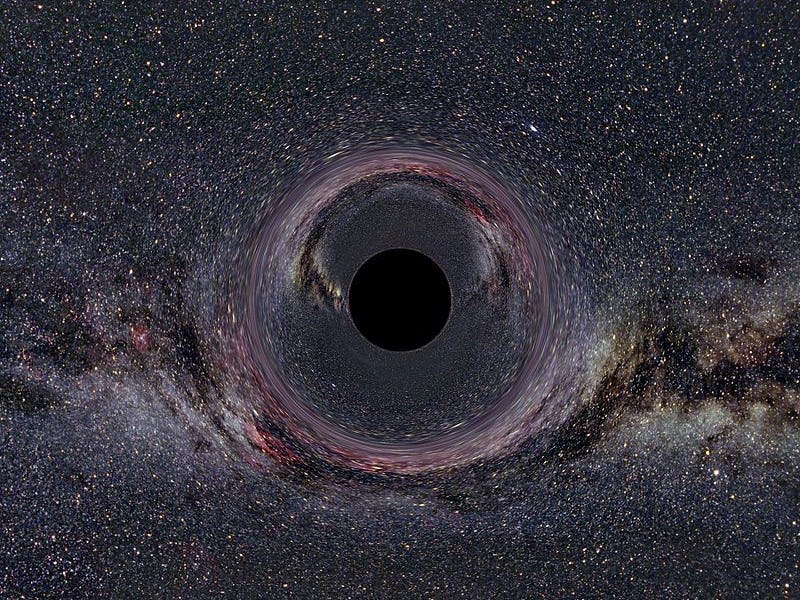Black Hole Suns Could Support Weird Forms of Complex Life
It's unlikely a civilization could evolve in such conditions.

Someone hug Interstellar’s science advisor. Just like in the film, a new study finds that a black hole with exactly the right temperature could serve as a cold sun and even support complex lifeforms.
The Czech Republic’s Tomáš Opatrný of Palacký University decided to model what a planet would be like with a cold sun and hot sky. Because one of the requirements for life is a temperature difference providing a useable source of energy, it seemed plausible that flipping our balance would sustain something. This is about as cool as the time we found out two black holes were going to smash into one another.
And according to Opatrný’s findings and with apologies to Soundgarden, a black hole sun is a good description of what you’d see if you lived on such a world. Ironically, black holes are actually some of the universe’s brightest objects as it superheats the gas and matter close to it, which in turn take on a glow.
But not just any black hole cold support life under these conditions.
“We need a fairly old black hole that has already cleared its surroundings and which is not further fed,” Opatrný told New Scientist. The ideal black hole would have an effective temperature of zero.
An Earth-sized planet in orbit of such a black hole could get roughly 900 watts of useful power from the difference in temperature between a hot sky and cold black hole, which is more than enough for life but not in any way we’d recognize it, since it’s unlikely a civilization could evolve in such conditions.